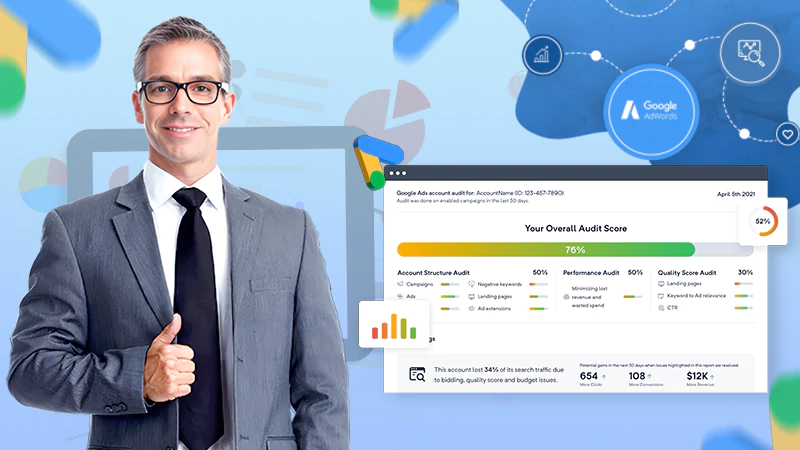How is Data Mining Being Distributed by the Top Companies and Government Organizations?
Data mining is the process of discovering patterns and insights from large sets of data using computational algorithms and statistical techniques. It involves the extraction of valuable and meaningful information from data sets, which can be used to make informed decisions and gain a competitive advantage.
Data mining has become increasingly important in businesses and government organizations, as it allows them to analyze large amounts of data in order to identify patterns, trends, and relationships. This helps them to better understand their customers, optimize their operations, and make strategic decisions. In the business world, data mining is used for customer segmentation, fraud detection, market analysis, and product recommendations, among other things. In government organizations, it is used for national security, crime prevention, tax fraud detection, and healthcare management, among other things.
Many of the top companies and government organizations around the world have embraced data mining as a crucial tool for their operations. With access to vast amounts of data, they can gain a better understanding of their customers and constituents, improve their services, and make more informed decisions. In this blog post, we will explore how some of these companies and government organizations are ethical utilizing data mining to achieve their goals.
Top Companies Utilizing Data Mining:
Google:
Google, one of the world’s largest search engines, uses data mining to provide users with the most relevant search results. Its algorithms analyze users’ search queries and browsing histories to understand their interests and preferences. This allows Google to display targeted ads to users based on their behavior and interests.
Google also uses data mining to improve its products and services. For example, it analyzes user behavior on its Google Maps application to improve the accuracy of its traffic predictions.
Amazon:
Amazon, one of the largest online retailers in the world, uses data mining to improve its product recommendations, pricing strategies, and supply chain management. Its recommendation system analyzes users’ browsing and purchase histories to suggest products that are likely to interest them. Additionally, Amazon uses data mining to optimize its pricing strategies by analyzing market trends and competitor pricing.
Amazon’s supply chain management also benefits from data mining. By analyzing sales data, it can optimize inventory management and reduce waste.
Facebook:
Facebook, the world’s largest social media platform, uses data mining to provide personalized content to users. Its algorithms analyze users’ activity, interests, and behavior to deliver targeted ads, news articles, and other content.
Facebook also uses data mining for sentiment analysis, which helps it understand how users feel about particular topics. This information is used to improve the user experience and to optimize its advertising strategies.
Netflix:
Netflix, a leading streaming platform, uses data mining to provide personalized recommendations to users. Its algorithms analyze users’ viewing histories to suggest new shows and movies that are likely to interest them.
Netflix also uses data mining to produce its original content. By analyzing user behavior, it can identify which types of content are popular and produce new shows and movies accordingly.
Apple:
Apple, a leading technology company, uses data mining to improve its products and services. For example, it uses data mining to improve the accuracy of its voice recognition software and to provide personalized recommendations to users in its App Store.
Apple also uses data mining to optimize its supply chain management. By analyzing sales data, it can identify trends and adjust its production accordingly.
In conclusion, data mining is a critical tool for many of the world’s top companies. By analyzing large amounts of data, these companies can gain valuable insights into customer behavior and market trends, which helps them make informed decisions and stay competitive.
Government Organizations Utilizing Data Mining:
National Security Agency (NSA):
The NSA, a United States intelligence agency responsible for collecting and analyzing foreign intelligence, uses data mining to identify potential terrorist threats. Its data mining program, called PRISM, collects and analyzes data from various sources, including phone and email records, in order to identify potential threats to national security.
Central Intelligence Agency (CIA):
The CIA, another United States intelligence agency, uses data mining to gather intelligence on foreign governments and organizations. Its data mining programs analyze data from various sources, including social media and news articles, to identify potential threats to national security.
Federal Bureau of Investigation (FBI):
The FBI, a law enforcement agency in the United States, uses data mining to identify potential criminal activity. Its data mining programs analyze data from various sources, including social media and financial records, to identify potential threats to public safety.
Department of Homeland Security (DHS):
The DHS, a United States government agency responsible for ensuring the security of the country, uses data mining to identify potential terrorist threats. Its data mining programs analyze data from various sources, including travel records and social media, to identify potential threats to national security.
Internal Revenue Service (IRS):
The IRS, a United States government agency responsible for collecting taxes, uses data mining to identify potential tax fraud. Its data mining programs analyze financial data, including tax returns and bank records, to identify potential cases of tax fraud.
In conclusion, data mining is an essential tool for many government organizations, particularly those responsible for national security and law enforcement. By analyzing large amounts of data, these organizations can identify potential threats and take action to protect the public. However, the use of data mining by government organizations also raises concerns about privacy and civil liberties, which must be carefully balanced against the need for security and public safety.
How Data Mining is Being Distributed by Top Companies and Government Organizations:
Data mining is often distributed across multiple systems and servers, allowing for more efficient processing of large amounts of data. In a distributed system, data mining tasks are divided among multiple computers, each of which processes a subset of the data. This allows for faster processing and greater scalability, as more computers can be added to the system as needed.
One of the advantages of a distributed system for data mining is increased processing power. By utilizing multiple computers, the system can process large amounts of data much faster than a single computer. This allows for real-time processing of large data sets, which is essential for many applications, such as fraud detection and national security.
Another advantage of a distributed system for data mining is increased fault tolerance. If one computer fails, the data mining tasks can be automatically transferred to another computer in the system. This ensures that data mining tasks are not interrupted, which is important for applications that require continuous monitoring, such as stock market analysis.
However, there are also challenges and risks associated with a distributed system for data mining. One of the main challenges is ensuring data consistency and accuracy. In a distributed system, data is stored across multiple computers, which can lead to inconsistencies if the data is not properly synchronized. This can result in incorrect analysis and decision-making based on inaccurate data.
There are also security risks associated with a distributed system for data mining. If one computer in the system is compromised, it can potentially compromise the entire system. For example, ABC Action News made a list of services that help people see others’ background, which could potentially lead to privacy concerns if the data falls into the wrong hands.
In conclusion, while a distributed system for data mining offers many advantages, such as increased processing power and fault tolerance, it also presents challenges and risks that must be carefully managed. Proper synchronization of data and security measures are essential to ensure accurate and secure data mining.
Examples of Data Mining Distributed by Top Companies and Government Organizations
Google Search Engine:
Google’s search engine is powered by a distributed data mining system that analyzes users’ search queries and browsing histories to provide the most relevant search results. Google’s algorithms use machine learning techniques to understand users’ search intent and deliver personalized results. The system is distributed across multiple servers to enable fast and efficient processing of large amounts of data.
Amazon Recommendation System:
Amazon’s recommendation system uses a distributed data mining system to analyze users’ browsing and purchase histories to suggest products that are likely to interest them. The system is based on collaborative filtering, which analyzes the behavior of similar users to make product recommendations. The system is distributed across multiple servers to enable fast and efficient processing of large amounts of data.
Facebook Advertising Algorithm:
Facebook’s advertising algorithm uses a distributed data mining system to analyze users’ activity, interests, and behavior to deliver targeted ads. The system analyzes users’ likes, shares, and comments to identify their preferences and interests. The system is distributed across multiple servers to enable fast and efficient processing of large amounts of data.
Netflix Recommendation System:
Netflix’s recommendation system uses a distributed data mining system to analyze users’ viewing histories to suggest new shows and movies that are likely to interest them. The system uses collaborative filtering to identify similar users and make personalized recommendations. The system is distributed across multiple servers to enable fast and efficient processing of large amounts of data.
NSA’s PRISM Program:
The NSA’s PRISM program is a distributed data mining system that collects and analyzes data from various sources, including phone and email records, to identify potential terrorist threats. The system is distributed across multiple servers to enable fast and efficient processing of large amounts of data. The program has raised privacy concerns due to its invasive nature and the potential for abuse.
Ethical Concerns Surrounding Data Mining:
Data mining has revolutionized the way that companies and governments analyze data, but it has also raised ethical concerns about privacy, discrimination, manipulation of information, and data breaches.
Invasion of Privacy:
One of the most significant ethical concerns surrounding data mining is the invasion of privacy. Data mining involves the collection and analysis of personal information, which can include sensitive data such as medical records, financial information, and social media activity. If this data falls into the wrong hands, it can be used to commit identity theft, fraud, or other crimes.
Discrimination:
Data mining can also lead to discrimination, particularly in areas such as employment and lending. For example, if data mining algorithms are trained on biased data, they may produce biased results. This can result in discriminatory practices such as denying employment or loans to certain groups based on factors such as race or gender.
Manipulation of Information:
Data mining can also be used to manipulate information, particularly in the context of social media and political campaigns. By analyzing users’ behavior and interests, companies and political campaigns can deliver targeted messages designed to influence their behavior. This can lead to a lack of transparency and accountability, as users may not be aware of the messages they are being targeted with.
Data Breaches:
Data breaches are another significant ethical concern associated with data mining. If a company or government organization’s data mining system is compromised, it can result in the exposure of sensitive information such as personal data, financial information, or national security secrets. This can result in significant harm to individuals and organizations, as well as damage to public trust.
Conclusion
In summary, data mining is a critical tool that many top companies and government organizations use to analyze large amounts of data, gain valuable insights, and make informed decisions. Companies like Google, Amazon, Facebook, Netflix, and Apple use data mining to improve their products and services and to provide personalized experiences to their users. Government organizations like the NSA, CIA, FBI, DHS, and IRS use data mining to protect national security, prevent crime, and detect fraud.
However, data mining also presents significant ethical concerns, including invasion of privacy, discrimination, manipulation of information, and data breaches. These ethical concerns must be carefully considered and addressed to ensure that data mining is used in a responsible and ethical manner.
In conclusion, there is a need for increased transparency and regulation of data mining to ensure that it is used in a responsible and ethical manner. Companies and government organizations must be transparent about their data mining practices and provide users with clear and concise information about what data is being collected and how it is being used. Regulations should also be put in place to ensure that data mining is used in a responsible and ethical manner and that users’ privacy and rights are protected. Ultimately, data mining can be a powerful tool for businesses and government organizations, but it must be used responsibly and ethically to avoid harm to individuals and society as a whole.
The Challenges and Benefits of Removing Negative Online…
Unlock the Simplest Way to Access LaSRS Login…
Strategic Wins: How SafeOpt Can Boost Your Online…
5 Reasons Why Marketing Matters in Business?
Google Ads: What Are the Basic Checklists to…
The Crucial Role of Press Releases in a…
8 Best Tech Tips to Implement for Better…
Fax Machines in the Digital Age: A Sustainable…
Breaking Barriers: The Power of Business Translation Services
Why Do Businesses Need a Dedicated Mobile App?
The Role of Onboarding in Improving Employee Retention…
3 Major Benefits of Onsite IT Support












